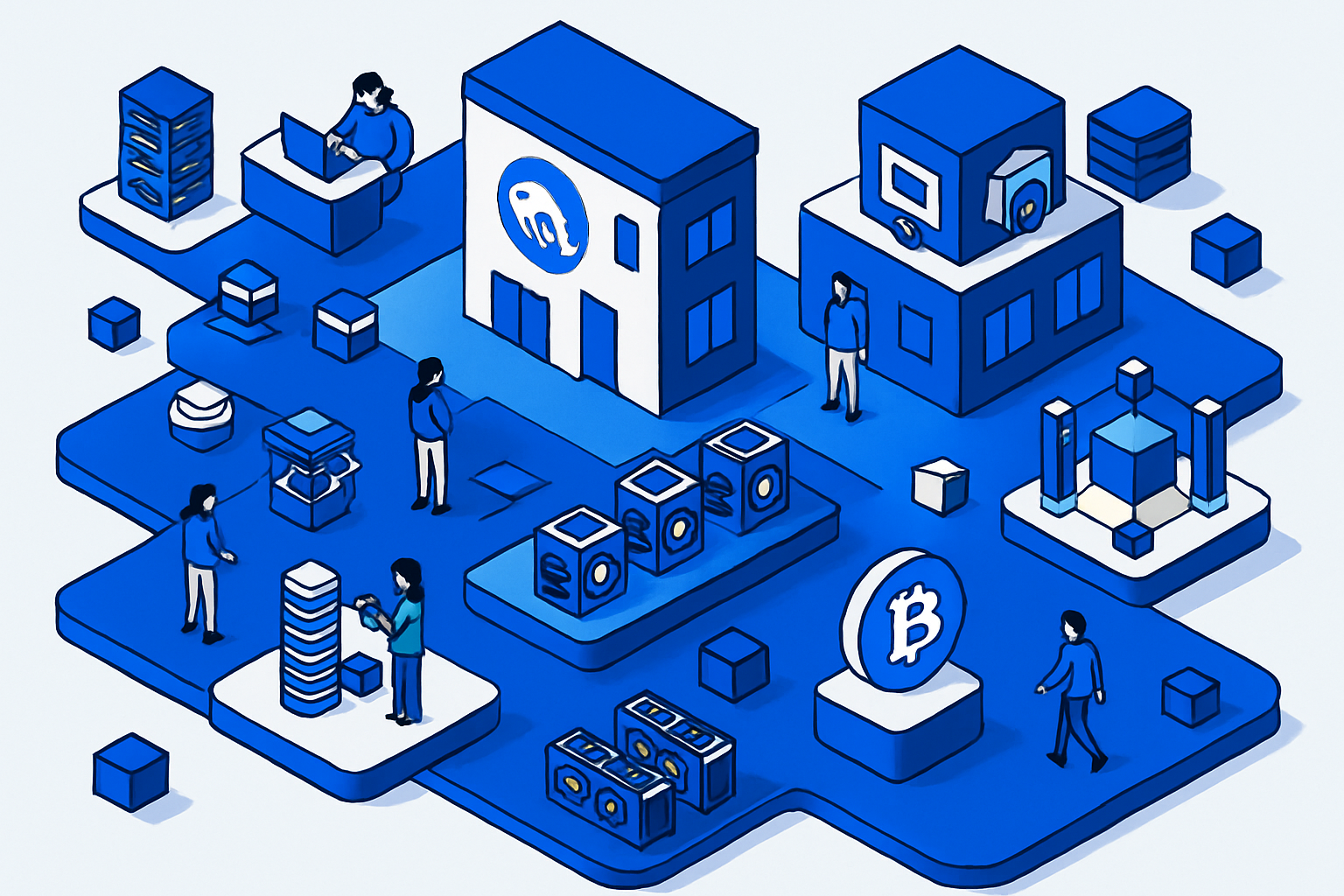
Cloud storage is being fundamentally reimagined on Solana, as Decentralized Physical Infrastructure Networks (DePIN) unlock the potential for community-owned data infrastructure. Instead of relying on a handful of hyperscale providers, DePIN leverages blockchain incentives to distribute storage capacity across thousands of independent contributors. The result: lower costs, censorship resistance, and a resilient backbone for the next wave of decentralized applications.
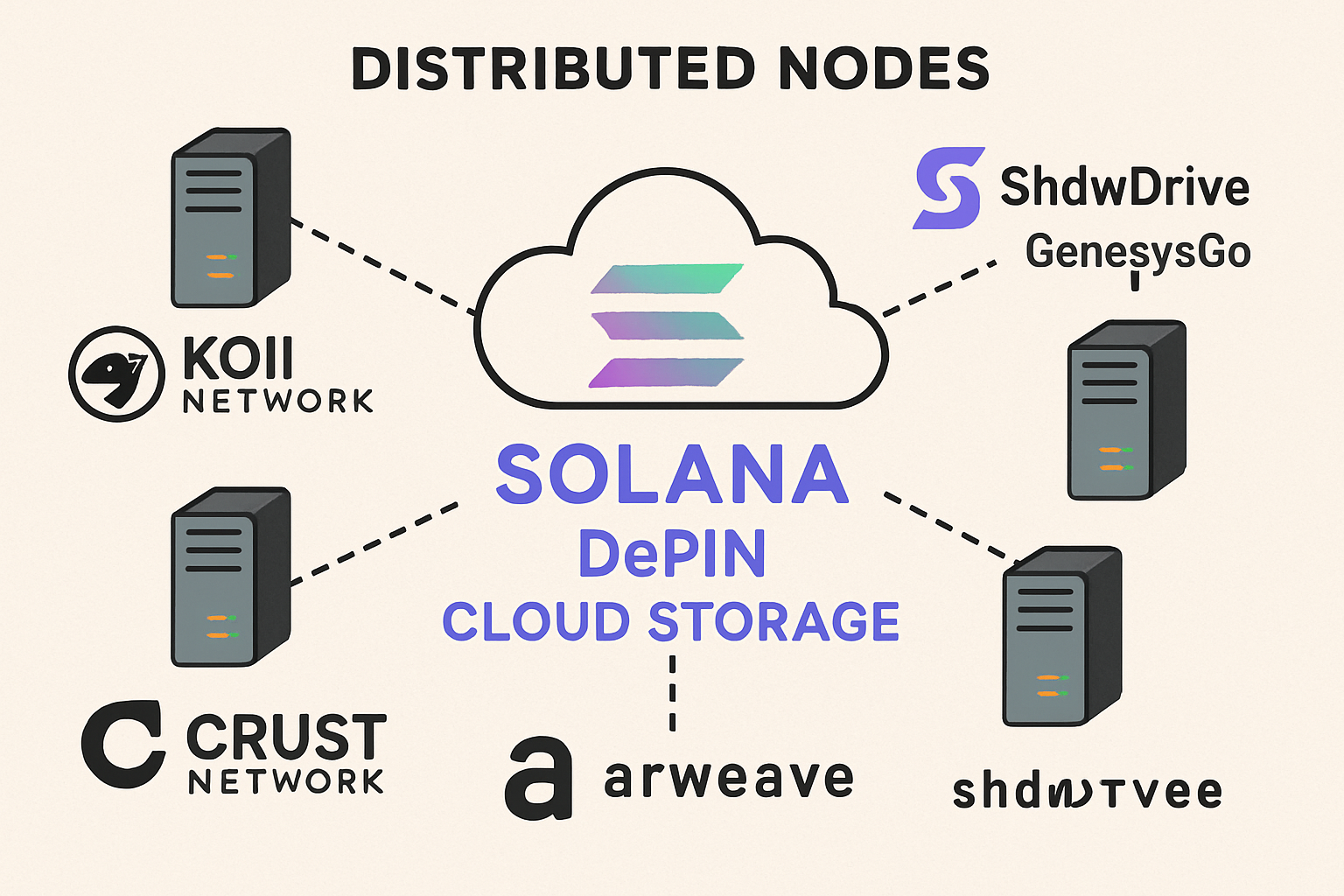
The current market context underscores the momentum behind this shift. With Solana trading at $188.65 ( and 0.0233% in 24h), developer activity and user adoption are surging across the DePIN sector. Four projects in particular are leading this disruption in decentralized storage on Solana: Koii Network, ShdwDrive (GenesysGo), Crust Network (Solana Integration), and Arweave (Solana Bridge). Each project brings a unique architecture and value proposition to the table, but all are united by a shared ethos: put control of data back into the hands of users.
Koii Network: IPFS-Powered Decentralized Storage with Content Delivery
Koii Network stands out for its innovative approach to decentralized storage and content delivery on Solana. By integrating InterPlanetary File System (IPFS) technology directly into its stack, Koii enables users to store files securely while ensuring global accessibility through distributed nodes. The network incentivizes resource sharing with native token rewards, creating a robust ecosystem where anyone can contribute spare bandwidth or disk space.
This model doesn’t just reduce reliance on centralized servers – it also enhances redundancy and uptime for hosted content. For creators and dApps seeking scalable, tamper-proof distribution channels, Koii’s blend of IPFS integration and Solana’s high throughput is a compelling solution.
ShdwDrive (GenesysGo): Community-Owned Storage Markets on Solana
ShdwDrive v2 by GenesysGo is another flagship project defining the future of decentralized storage on Solana. At its core, ShdwDrive allows users to allocate unused device storage to a global pool – earning $SHDW tokens as compensation for their contribution. The platform’s Android app is already live, with plans for broader cross-platform support.
What sets ShdwDrive apart is its dual utility: $SHDW tokens are used both for staking (to claim network capacity) and as payment for data access fees. This creates an open marketplace where supply dynamically meets demand – all underpinned by Solana’s lightning-fast settlement layer. For developers building dApps that require reliable file hosting or backups outside centralized silos, ShdwDrive offers a scalable alternative that aligns incentives between all participants.
Top Solana DePIN Storage Projects to Watch
-
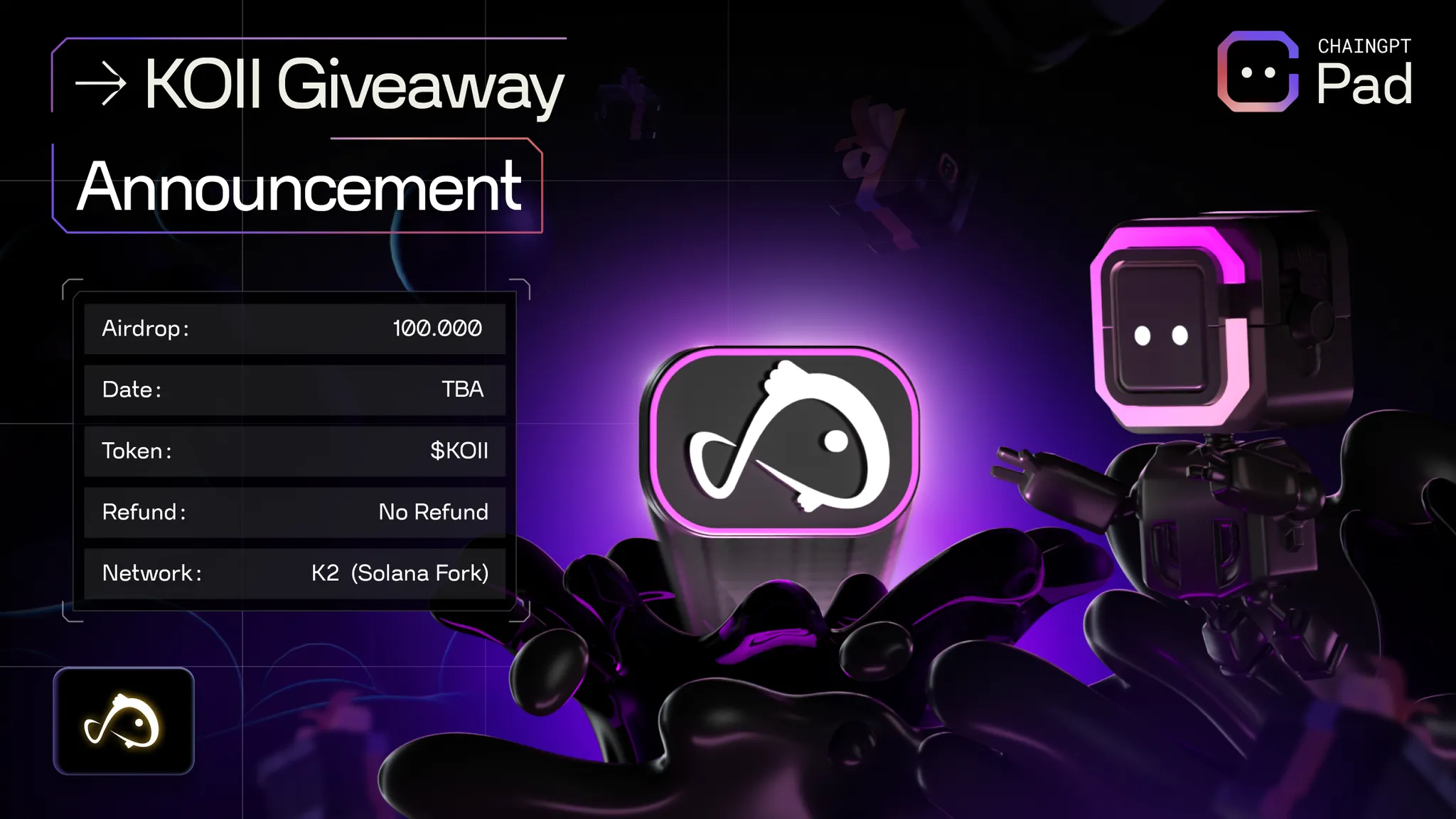
Koii Network: A leading decentralized storage solution on Solana, Koii Network integrates with IPFS to provide scalable, censorship-resistant data storage and content delivery. Its architecture rewards node operators for hosting and serving content, enabling robust community participation.
-
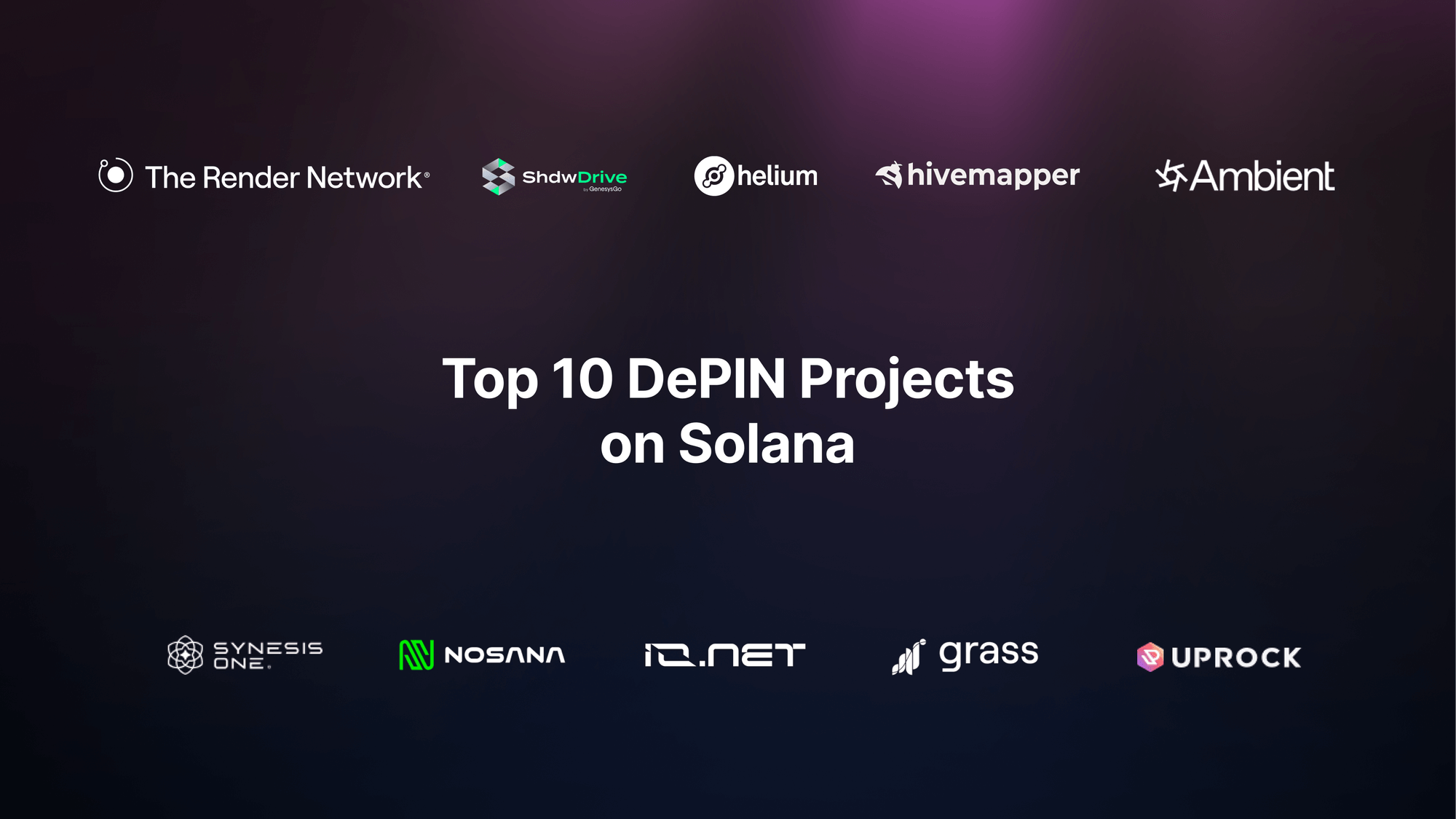
ShdwDrive (GenesysGo): ShdwDrive by GenesysGo is a distributed storage platform leveraging Solana’s high throughput. Users can contribute unused device storage and earn $SHDW tokens. The platform is currently available on Android, with expansion plans underway.
-
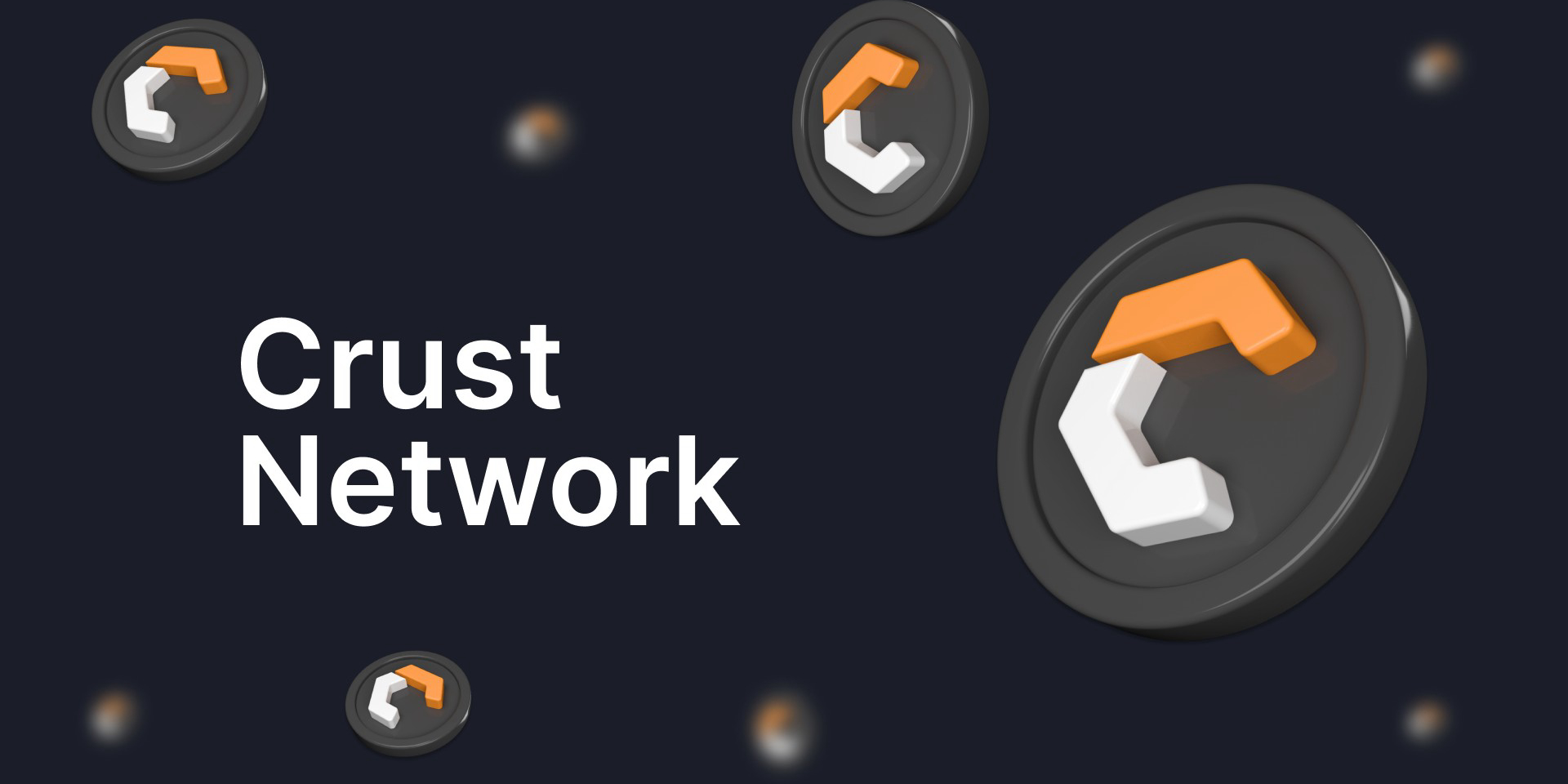
Crust Network (Solana Integration): Crust Network extends its decentralized storage protocol to Solana, enabling seamless integration for dApps and users. It leverages a global network of nodes to ensure data redundancy, security, and efficient access within the Solana ecosystem.
-

Arweave (Solana Bridge): Arweave offers permanent, tamper-proof data storage and connects to Solana via the Solana-Arweave bridge. This integration allows Solana-based projects to store critical on-chain data and NFTs with long-term persistence and verifiability.
Crust Network and Arweave: Bridging Multi-Chain Storage with Solana
The push towards truly decentralized cloud infrastructure doesn’t stop at native Solana solutions. Crust Network, known for its Web3 storage protocol across multiple blockchains, has completed deep integration with Solana – allowing users to leverage Crust’s decentralized file system from within the SOL ecosystem. This gives developers access to additional redundancy layers and cross-chain interoperability without compromising speed or security.
Arweave, meanwhile, offers permanent data archiving via its own blockchain protocol but has established a bridge to Solana so that transaction metadata and critical files can be immutably stored off-chain while still being referenced directly by smart contracts or dApps running on SOL. This hybrid approach brings together best-in-class permanence with high-throughput execution – crucial for everything from NFT provenance to regulatory-compliant recordkeeping.
These integrations are more than technical novelties, they represent a critical evolution in how decentralized storage can scale to meet real-world demands. Crust Network’s Solana compatibility means that developers can tap into a global, censorship-resistant storage market without the friction of moving assets or data between chains. This is especially relevant for projects handling sensitive user information or operating in jurisdictions where data sovereignty matters.
Arweave’s bridge with Solana, on the other hand, enables perpetual data storage for dApps that require immutable records. By anchoring hashes and metadata on Solana while storing payloads on Arweave, teams get the best of both worlds: cost-efficient execution and long-term durability. This synergy is already being leveraged by NFT platforms and compliance-focused DePIN protocols seeking robust audit trails.
Why Community-Owned Data Infrastructure Matters
Traditional cloud vendors prioritize their own margins, often at the expense of user privacy, uptime guarantees, or fair pricing. In contrast, DePIN projects on Solana like Koii Network, ShdwDrive (GenesysGo), Crust Network, and Arweave are turning users into stakeholders. This shift is not just philosophical, it’s structural. Token incentives ensure that anyone can participate in network growth, from running a node to simply contributing spare storage capacity.
The result is a more resilient and transparent ecosystem where costs are lower and innovation moves faster. For instance, as Solana holds strong at $188.65, the economic incentives for storage providers remain attractive, encouraging further network participation and helping to secure the underlying infrastructure. This model also creates natural resistance to censorship: no single entity controls the data pipes or storage endpoints.
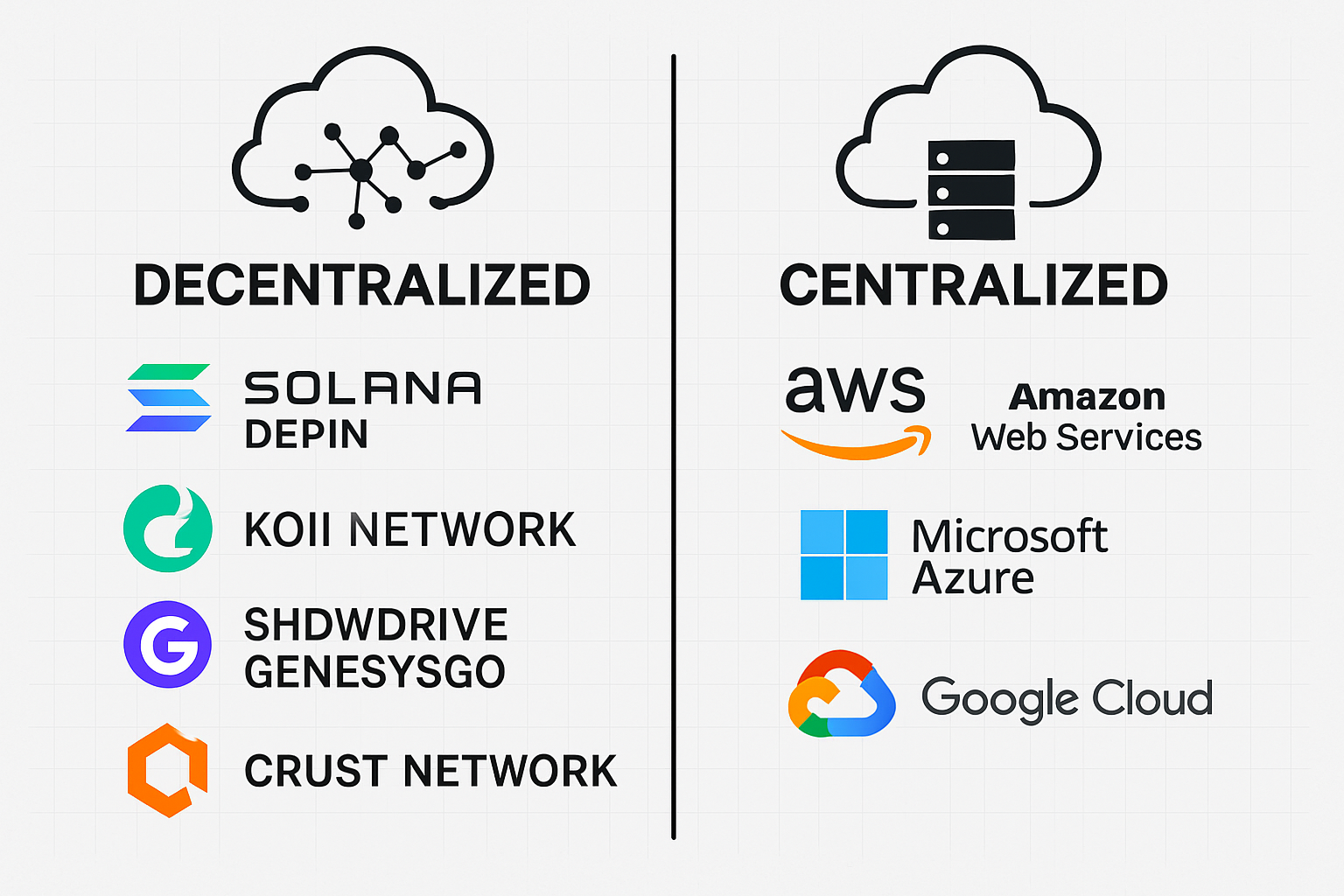
Key Features Driving Adoption
- Censorship Resistance: Distributed nodes ensure no single point of failure or control.
- Scalability: Solana’s high throughput allows these DePIN networks to handle enterprise-scale workloads.
- User Incentives: Native tokens reward both resource providers and consumers.
- Permanence and Redundancy: Solutions like Arweave guarantee long-term data availability.
- Cross-Chain Interoperability: Crust Network and Arweave bridges expand access beyond Solana-native dApps.
What’s Next for DePIN Storage Projects?
The pace of development in decentralized storage on Solana shows no sign of slowing down. As regulatory scrutiny intensifies around centralized tech giants, and as demand grows for verifiable, censorship-resistant infrastructure, DePIN projects are positioned at the center of Web3’s next growth cycle. Expect continued improvements in user experience (with more intuitive apps), deeper cross-chain integrations, and new incentive models that further decentralize control over digital resources.
If you’re building dApps or looking for alternatives to legacy cloud vendors, now is the time to explore these emerging solutions. The combination of Koii Network’s IPFS-powered delivery, ShdwDrive’s open marketplace mechanics, Crust Network’s multi-chain reach, and Arweave’s permanence delivers a toolkit that rivals anything from Web2 incumbents, while putting ownership back where it belongs: with the community itself.
Top Solana DePIN Storage Networks to Watch
-

Koii Network: A decentralized storage protocol on Solana, Koii leverages IPFS integration and incentivizes users to share bandwidth and storage. Its unique content delivery capabilities and community-powered infrastructure make it a leader in censorship-resistant data storage.
-

ShdwDrive (GenesysGo): Built natively on Solana, ShdwDrive offers distributed, high-throughput storage with crypto rewards for users who contribute unused device space. The $SHDW token enables staking for storage capacity, with the latest version available on Android and more platforms planned.
-

Crust Network (Solana Integration): Crust Network extends its Web3 storage platform to Solana, providing decentralized, scalable file storage and data management. Its integration allows Solana dApps to access secure, censorship-resistant storage backed by a global node network.
-

Arweave (Solana Bridge): Through its Solana bridge, Arweave enables permanent, tamper-proof data storage for Solana-based applications. The bridge facilitates seamless transfer and archiving of Solana blockchain data to Arweave’s permaweb, ensuring long-term accessibility and immutability.






